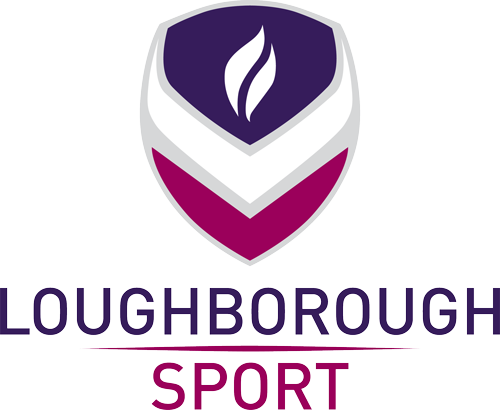PADSIS 2015
Tony Strudwick - Health, Fitness and Athletic Preparation for Children
This year’s conference was opened at the pre conference dinner on Thursday evening by Tony Strudwick, Manchester United’s head of sports science.
For all the attending guests, he posed the question, what does effective athletic preparation look like for children? In doing so he called into question many of the predominant practices within the football industry, and discussed the effect of the seemingly ubiquitous 10,000 hour myth and resultant early specialisation.
He discussed the overall physical literacy to the development of both the child and the athlete. In making the point that the current generation of children do not play outside, that their lives are lived in front of a computer screen. As a result the standard of movement competency of children decreases year by year. He also questioned how the method of delivery and relationships might change with ‘Generation Y’ children.
Strudwick argued that it is very clear that we need to help children become physically robust by giving them a range of physical experiences, especially at an early age. Playing multiple sports and not simply the ones that they, or the parents want them to succeed in.
David Shenk - How the latest science changes our understanding of talent and coaching
David Shenk spoke at length about our previous lack of understanding of the role of genetics in shaping our lives. He described our genetic make up as being similar to a control board in that it is being constantly turned on and off. Our genetics cannot be separated from the impact of environment
“No genetic factors can be studied independently from the environment”
Michael Meaney
Shenk gave three examples of this to highlight his point. The first being the story of two genetically identical cats, who despite this had very different features. The second being London taxi drivers, the brain scans of those who passed ‘the knowledge’ showed expanded Hippocampus compared to those that didn’t. The final example being the twins Otto and Ewald Spitz, for whom the type of activity they engaged in led to dramatically different physiques.
The practical implications of this are that it is important to educate people about what an impact their environment and how we can adapt based on the demands that are put on us. Although he was not in any way suggesting the we all have the same genetic potential, it was his feeling that we have put too much emphasis on our genetic make up as being a defining factor in our lives.
He also suggested that the area of ‘Epigenetics’ would have a profound influence on our understanding of the impact of environment on genetics over the course of our lifetimes. One of his closing statements was “We have no way of knowing how much unactualised genetic potential exists”
Nigel Redman
The title of Nigel Redman’s talk was that of ‘Leading School Sport and Resolving Conflict’. Within it, he asked some very interesting questions about what an effective team looks like. Whether it has a clearly defined framework, with purpose, roles and rules to guide the path for all involved, giving them meaning in their day to day roles. He told the story of a university coach who didn’t understand what his purpose was in his role and asked of him ‘If you don’t know what you are doing, what have you done for the last year?’
He also discussed what characterised a ‘functional team’ and flipped Patrick Lencioni’s concept of the Five Dysfunctions of a Team showing the pyramid of a ‘Functional Team’ (please see the diagram attached).
He asked of all of the delegates, a great way to prime people for a conversation related to these standards, was to ask ‘What behaviours would you expect to see if you want a programme to fail?’ He then gave out a questionnaire, assessing a team across a number of areas. The critical issue, he felt was that of a culture of honesty, underpinned by trust. Feedback is purposeful and effective if it is not taken as a personal assault on someone else; it brings clarity to all roles and situations. The only way in which trust is built, is over time and by showing vulnerability: ‘Like a good marriage, trust is never complete; it must be maintained over time’. He then outlined the qualities of a trusting team which included asking for help, admitting mistakes and focusing on issues, not politics.
He put forward the following equation for measuring trust:
Credibility + Intimacy + Reliability = Trust
Self Interest
In turn, this trust is how the conflict within any team is mastered. He proposed that conflict is essential for any healthy team, it is how this conflict is dealt with that defines the shape and culture of an organisation. Healthy conflict is how any organisation progresses.
Iain Campbell - Compulsory activities in the school games programme, is it legal?
Iain Campbell began by highlighting that there is a ‘perception’ of an increased risk of injury within a number of sports that are commonly played within independent schools. He highlighted the legal responsibilities of schools which are to uphold the position of a Duty of Care and the contractual obligation to keep children safe.
Although he was unable to offer any solid yes or no answers, because it is yet to be tested in case law. His feeling was that a school was unable to make a sport compulsory, if a parent withdraws consent. His feeling was that, if this happened and a child then went on to be injured, it could leave the school open to a wide variety of different legal issues.
He went on to offer the advice that it would be good practice to let parents know potential injury risks in certain sports (which have been dramatically inflated by certain elements of the academic community). As well as informing parents of the terms of the school’s insurance policy and strictly enforcing safety guidelines during the refereeing of fixtures.
Professor Richard Bailey - The Science Behind School Sport
Of all the talks of the day, it was potentially Professor Bailey’s that might have the most significance to those schools that are struggling to defend the number of hours dedicated to sport. He put forward the evidence from a number of different studies that linked improved academic performance to fewer hours in the classroom and more engaging in rigorous physical activity. He stated that “Schools with fitter children outperformed the others” he also stated that this link is now so well proven that it as close to being a fact as science is able.
He also covered the many pseudo-scientific myths of sports science that are widely believed and accepted by national governing bodies. His list included: VARK learning preferences, Neuro Linguistic Programming, the Long Term Athlete Development model and Action Typing.
Bailey also highlighted the lack of funding and state of school sport in the state sector. He stated that in the previous few years, the Premier League had put more money into state primary physical education than the state. He also criticised primary school PE as being taught by under resourced and under qualified teachers who are not able to take on the importance of the role. He also showed that the first ten years in life are critical for the development of movement skills. If not developed by age 10, there is a link with early drop out and a lack of physical exercise later in life. He highlighted this as being part of the ‘pandemic of inactivity’ that has recently been linked with the lowering of life expectancy around the world.
Professor Bailey also pointed to the other associated benefits of school sport which included emotional welfare, financial and social success. These are often referred to and well known by members of our profession, but it was pointed out that without quality of coaching, these benefits will not happen.
Further reading
Jamie Taylor is Head of Rugby at Denstone College

















